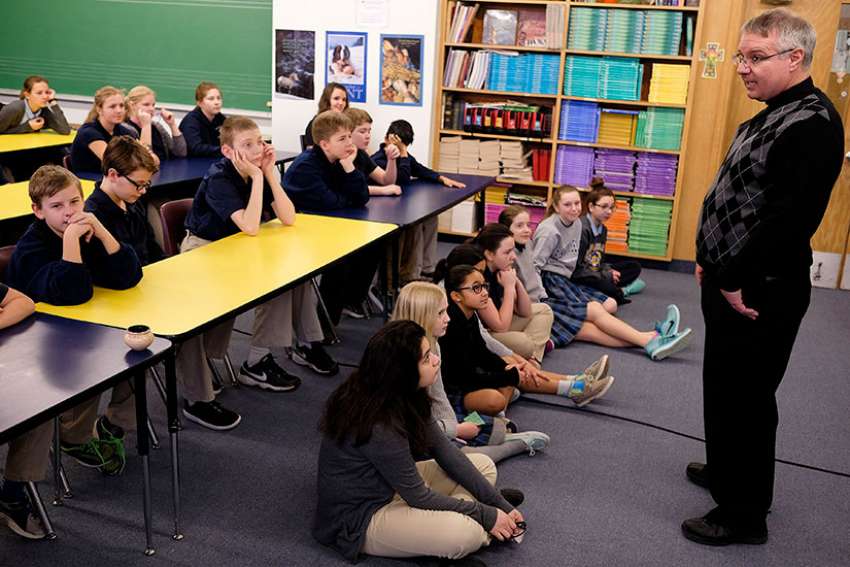“We were pretty much devastated,” said Paul Picard, director of education for Ontario’s Windsor-Essex Catholic District School Board. “Virtually everyone outside of certain pockets in the GTA is experiencing (the effects) of declining enrolment. So in that context you are certainly looking to increase your enrolment. There is a strong appetite, based on the strength of the education system in Ontario, for international students to want to come.”
Although many boards have adopted foreign student strategies, Windsor-Essex has been especially successful.
Picard recently travelled to Asia on a three-week recruitment campaign with four other board representatives. The trip cost $60,000 and that’s money well spent said Picard, who noted that each student recruited represents $13,500 for the board.
“It is already bearing significant fruit,” he said. “The 24 that were the immediate fallout from that trip, that number has already increased to over 50.”
By this time next year Picard hopes to see that number doubled to 100 and then doubled again to 200 by September 2018. Prior to the trip Picard said about 100 of the board’s 20,000 students were the result of foreign recruitment which began about four years ago.
“We’ve been at this for a couple of years,” he said. “Had we not gotten into these initiatives ... we had projected to be as low as 16,000 to 17,000 this year.”
And with the hope of having as many as 200 international students within 18 months Picard said the board is now considering a student residence.
Currently international students, who are mostly in Grades 9-12, rely on local residents for room and board. Those expenses are not included in the student’s tuition.
Pat Daly, president of the Ontario Catholic Schools Trustees’ Association, said that while international recruitment can offset the impacts of declining enrolment, it is important for boards to view these students as more than just money.
“It is important that we are offering excellence in Catholic education to these students,” he said. “While it is a financial benefit, it is at the same time a real contribution to the lives of these students.”
Picard said that while many Asian schools, particularly in China, excel at teaching “the fundamentals,” their overly specialized approach limits the students’ ability to think creatively.
“They fully acknowledge what they need from the West ... which is the creative thinking component,” he said. “They have so many subject specialists that they don’t have a real integrated learning model like we have.”
Daly, who also serves as chair of the Hamilton Catholic District School Board, said his board has no plans to adopt an aggressive plan for foreign recruitment, but admitted the success of Windsor-Essex is likely to influence boards to take such steps.
Sudbury Catholic is another board starting to reap the rewards of the international student market. Earlier this year the board welcomed students from Japan, Korea and Vietnam.
Representatives from the French Catholic school board in southwestern Ontario also accompanied the delegation from Windsor-Essex to Asia.
Earlier this year the province’s eight French boards entered into an agreement with four diocesan schools in Belgium. It allows for student exchange programs as well as resource sharing.
Picard’s board has also explored markets outside of Asia, including Spain, Portugal and South America.
“Hopefully we learn from the past because right now things look rosy in the Windsor area ... but these things tend to be cyclical,” Picard said. “It might not be for five or 10 years but there will be a downturn again. It would seem important to me that we would put ourselves in a position where we are diversified so that declining enrolment doesn’t devastate us again.”


